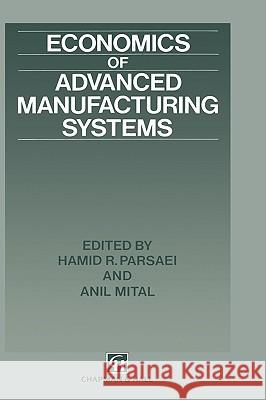Economics of Advanced Manufacturing Systems » książka
Economics of Advanced Manufacturing Systems
ISBN-13: 9780412433504 / Angielski / Twarda / 1992 / 373 str.
The 1980s have witnessed a tremendous growth in the field of computer integrated manufacturing systems. The other major areas of development have been computer-aided design, computer-aided manufacturing, industrial robotics, automated assembly, cellular and modular material handling, computer networking and office automation to name just a few. These new technologies are generally capital intensive and do not conform to traditional cost structures. The net result is a tremendous change in the way costs should be estimated and economic analyses performed. The majority of existing engineering economy texts still profess application of traditional analysis methods. But, as was men tioned above, it is clear that the basic trend in manufacturing industries is itself changing. So it is quite obvious that the practice of traditional economic analysis methods should change too. This book is an attempt to address the various issues associated with non-traditional methods for evaluation of advanced computer-integrated technologies. This volume consists of twenty refereed articles which are grouped into five parts. Part one, Economic Justification Methods, consists of six articles. In the first paper, Soni et at. present a new classification for economic justification methods for advanced automated manufacturing systems. In the second, Henghold and LeClair look at strengths and weaknesses of expert systems in general and more specifically, an ap plication aimed at investment justification in advanced technology. The third paper, by Carrasco and Lee, proposes an enhanced economic methodology to improve the needs analysis, conceptual design and de tailed design activities associated with technology modernization."











